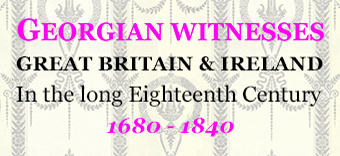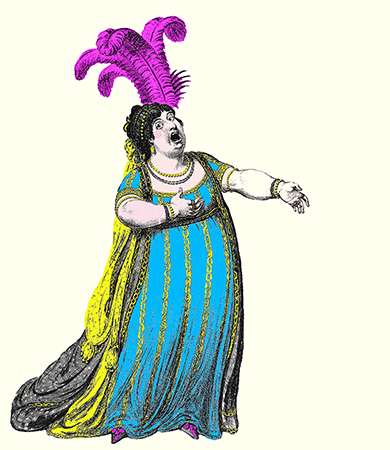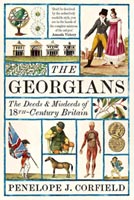Georgian Witnesses
21 / CODA
THREE GEORGIAN SONGS
SONGS CARRY MESSAGES THROUGH TIME, OFTEN BORROWING AND REUSING OLDER TUNES
21.1 Holding onto office, with affable cynicism. One verse plus chorus of The Vicar of Bray (c.1725), whose views change with changing circumstances
In good King Charles’s golden days [Charles II ],
When loyalty no harm meant;
A zealous High-Church man I was,
And so I gain’d Preferment.
Unto my flock I daily preached
Kings are by God appointed,
And damn’d are those who dare resist –
Or touch the Lord’s Anointed.
[Chorus] And this is law, I will maintain Unto my dying day, Sir, That whatsoever King may reign, I’ll be the Vicar of Bray, Sir! …
21.2 Intense spiritual recoil from having participated in the horrors of the slave trade. Two verses of John Newton’s Amazing Grace (1779)
Amazing grace, how sweet the sound
That saved a wretch like me!
I once was lost, but now am found;
Was blind but now I see.
‘Twas grace that taught my heart to fear,
And grace my fears relieved.
How precious did that grace appear
The hour I first believed. …
21.3 Three verses + chorus of Auld Lang Syne [Former Times], the world’s most frequently sung song, translated into over 40 different languages, and celebrating affectionate remembrance. It was adaptively penned in 1788 by Robert Burns (1759 – 96), based on an older popular ballad; and in 1799 it was set to another folk tune, making a powerful combination. It is a favoured song for community singing at commemorative meetings, such as at funerals; End-of-Year celebrations; passing-out parades; and other collective gatherings
Should auld acquaintance be forgot
And never brought to mind?
Should auld acquaintance be forgot
And auld lang syne?
[Chorus]
For auld lang syne, my dear
For auld lang syne,
We’ll tak a cup o’ kindness yet
For auld lang syne.
We twa hae run about the braes
And pu’d the gowans [daisies] fine;
But we’ve wander’d mony a weary foot
Sin’ auld lang syne.
[Chorus]
And there’s a hand, my trusty fiere [companion],
And gie’s a hand o’ thine;
And we’ll tak a right guid-willie waught [goodwill drink],
For auld lang syne.
[Chorus]
STOP PRESS
21.4 An announcement from Retrospect Opera:
Retrospect Opera has just released a recording of Charles Dibdin’s The Wags of 1790. This was the most successful of his celebrated one-man shows, or, as he liked to call them (developing the idea of tabletalk), “Table Entertainments”.
Dibdin stood behind a piano, alternating speaking and singing, bringing a wide range of comic characters to life. The Table Entertainments are now brought to life again by the versatile talents of Simon Butteriss www.simonbutteriss.com/home.html
accompanied by Stephen Higgins on a genuine 1801 Broadwood piano. The CD release is accompanied by a booklet containing a complete edited text of The Wags and introductory essays by John Cunningham and David Chandler. It is available from good music retailers, or directly from Retrospect Opera www.retrospectopera.org.uk/
CD_Sales.html
For anyone wanting to experience The Wags, the entire recording is also on YouTube: www.youtube.com/FbABKeLVGQ




